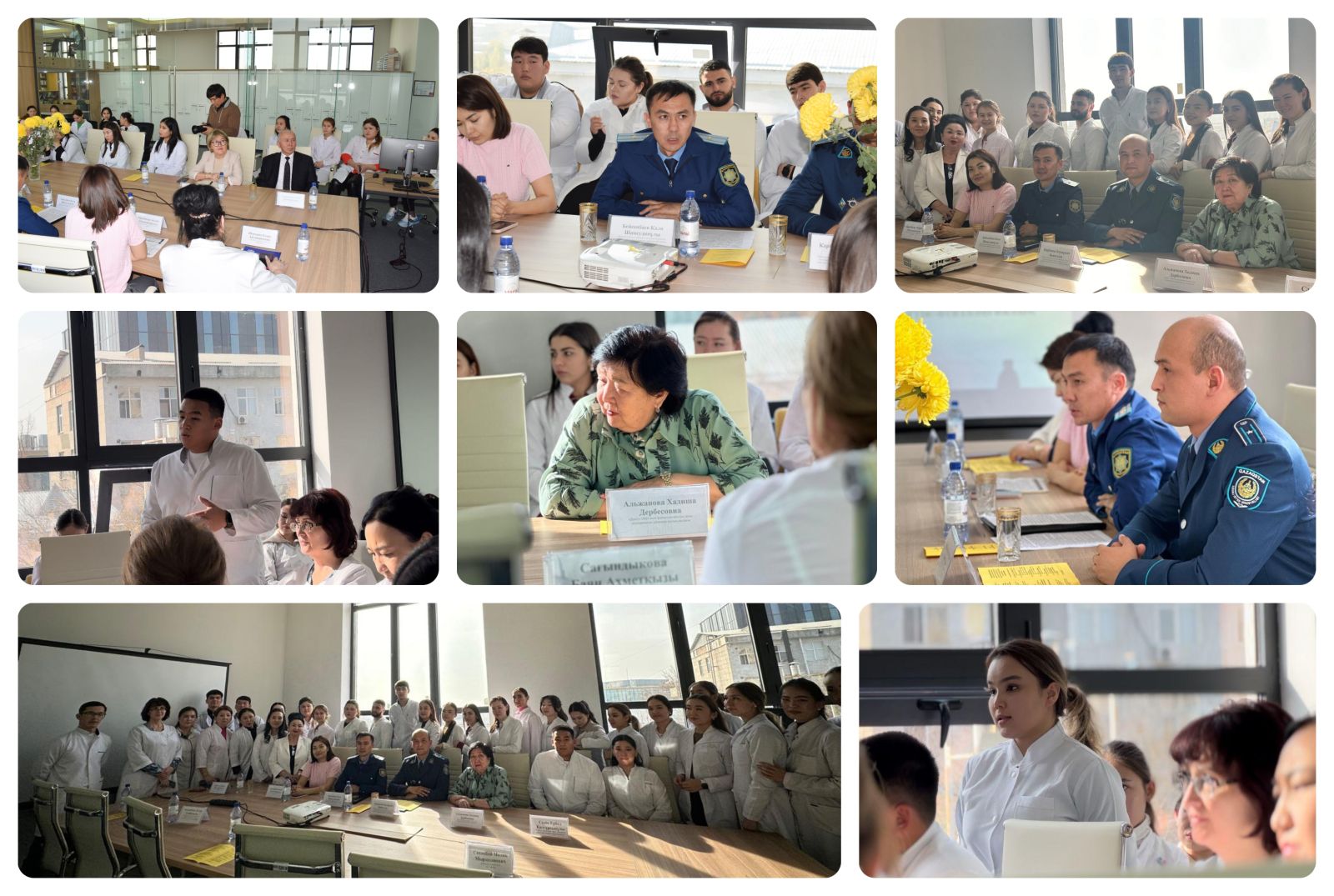Current Issues in Practical Pharmacy

The Department of «Organization and Pharmaceutical Business» held a round table on the topic: "Current Issues in Practical Pharmacy."
- Organizational and legal aspects of pharmaceutical activities (regulation of drug dispensing, combating drug addiction).
- Socio-psychological aspects of the pharmacist's work.
On November 12, 2024, the Department of «Organization and Pharmaceutical Business» held a round table discussion on "Current Issues in Practical Pharmacy." The event was organized as part of the department's 2024-2025 academic program and brought together representatives from various government and professional bodies, as well as students and faculty.
Key topics of discussion included:
- Organizational and legal aspects of pharmaceutical activities (regulation of drug dispensing, combating drug addiction).
- Socio-psychological aspects of the pharmacist's work.
The Department of "Pharmaceutical Organization and Management" aims to continuously improve the professional competencies of its students. An important task is to train specialists who can effectively address professional challenges, applying their knowledge within the framework of current legislation and modern pharmaceutical practices.
Bauyrzhan Kanatuly Karabekov, Senior Operational Major of the Police Department of the city of Shymkent and Head of the Department for Combating Drug Crimes, spoke about issues such as "pharmacy addiction" and the dispensing of drugs without a prescription. He emphasized the importance of strict regulation in this area to combat the illegal circulation of narcotic substances.
Qali Shamsudinuly Beisenbayev, Senior Prosecutor of the Department for the Protection of Public Interests of the Shymkent City Prosecutor’s Office, shared information about synthetic and designer drugs. According to him, these substances are often sold as alternatives to traditional drugs and pose a serious threat to health and mental well-being.
Aigerim Abdygapparkyzy Orynbasar, Head of the Pharmaceutical Activity Control Department, spoke about the legal consequences of violating rules for drug sales. According to Article 426, Part 1 of the Code of Administrative Offenses of the Republic of Kazakhstan, dated July 5, 2014, No. 235-V, administrative liability is provided for such violations. This year, 14 cases related to the illegal circulation of drugs were recorded in Shymkent.
The psychological aspects of the pharmacist's work were also an important part of the discussion. Khadisha Derbesovna Alzhanova, Director of the South Kazakhstan Association of Pharmaceutical and Medical Organizations "Damu," emphasized essential personal qualities for pharmacists, such as restraint, attentiveness, the ability to respond quickly, and a good memory.
At the end of the event, students and future professionals had the opportunity to ask questions to the round table participants. Each question was considered in detail, and participants provided comprehensive answers, which allowed students to gain a deeper understanding of the most important aspects of their future profession.
 673 views
673 views
